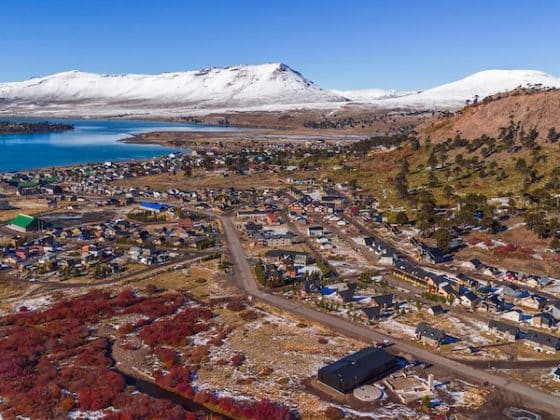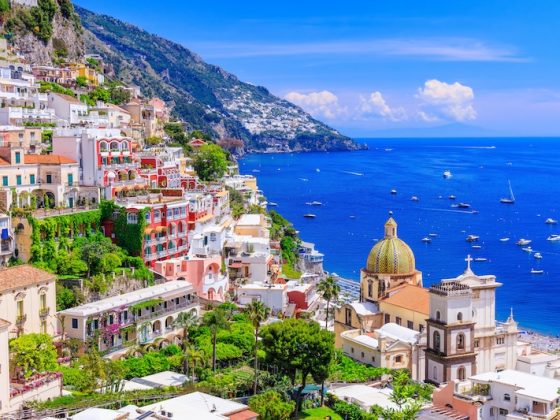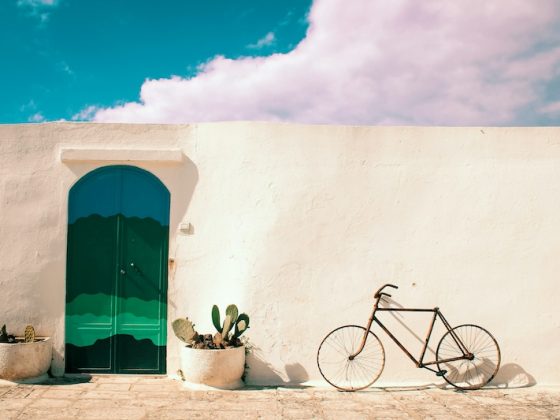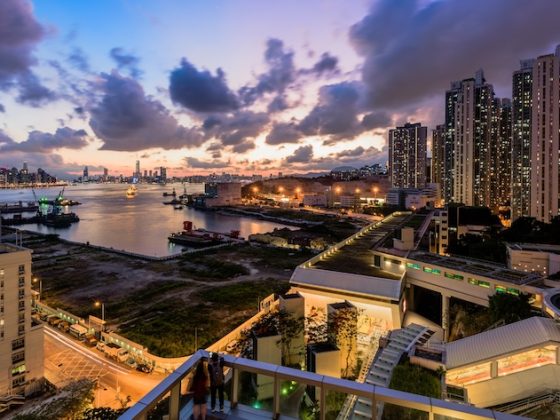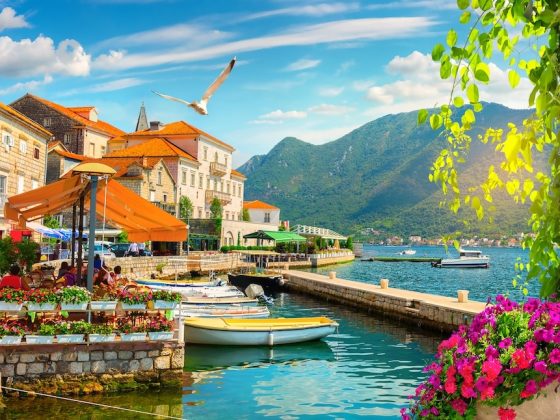Introduction
Relocating or planning a long-term stay in New Zealand starts with one critical question: What is the cost of living in New Zealand? Whether you’re an expat, student, or digital nomad, understanding how much you’ll need each month to maintain a comfortable life is essential. In 2025, New Zealand remains one of the world’s most beautiful, high-quality-of-life destinations; but it’s also one of the pricier ones. From Auckland’s rising rents to the cost of imported groceries, daily expenses can add up quickly. This guide breaks down everything in U.S. dollars, helping expats, students, and retirees calculate realistic monthly budgets based on current rates and real-world data.
Understanding the “Cost of Living in New Zealand”
When we talk about the cost of living in New Zealand, we’re describing the full range of daily and monthly expenses it takes to maintain a normal standard of life. rent or mortgage payments, groceries, utilities, transport, healthcare, education, and leisure. But it’s important to note that “normal” varies dramatically depending on where you live and how you live.
For instance, Auckland and Wellington rank among the country’s most expensive cities, with rents and food prices comparable to smaller U.S. metros like Seattle or Denver. Meanwhile, Christchurch and regional areas such as Napier, Nelson, or Dunedin offer a noticeably lower cost of living, often 20–30% cheaper, though with fewer job options or nightlife.
Read more like this Life in Auckland
Family size and lifestyle choices also shape monthly budgets. A single digital nomad in a shared flat can live comfortably on about $2,000 per month, while a family of four renting a suburban home might spend twice that. Salaries tend to adjust to regional costs, but newcomers are often surprised by the high price of imported goods, fresh produce, and fuel, all influenced by New Zealand’s remote geography and small population base.
In short, understanding the cost of living in New Zealand is about aligning your expectations, income, and lifestyle with the realities of a country that offers world-class quality of life at a price that depends on where you choose to call home.
Breakdown of Key Expense Categories
Cost of Housing and Rent
Housing remains the single largest monthly expense for most residents and expats in New Zealand. As of 2025, average rent prices continue to rise, particularly in urban centers with strong job markets and limited supply.
- Auckland: around $1,275/month for a one-bedroom apartment downtown.
- Wellington: roughly $1,045/month, with similar quality but fewer high-rise options.
- Christchurch: about $810/month, benefiting from a more balanced housing market.
- Smaller towns or rural areas: typically $580–925/month, often with more outdoor space.
Three-bedroom family homes near city centers range from $2,200–2,500/month, though suburban or coastal towns can be much cheaper. Urban rental competition remains intense, particularly in Auckland and Wellington, where vacancy rates hover around 1.5–2%. Many newcomers secure short-term Airbnb rentals before finding long-term leases.
Tip: Look beyond downtown cores. Suburbs like Papakura (Auckland) or Lower Hutt (Wellington) offer 30–40% lower rents with good transport links and quieter communities.
Read more like this Things to know if you’re Moving to New Zealand
Cost of Utilities & Internet
Utility bills in New Zealand include electricity, gas or heating, water, and waste collection. For an average apartment, this typically adds $87–175/month. Larger detached homes can reach $200–250/month, especially during winter when heating demands surge.
Electricity prices are among the highest in the OECD, largely due to generation costs and distribution fees. The South Island experiences higher winter usage, while the North Island—particularly Auckland—faces higher rates due to population density.
Internet access is generally reliable, with average speeds exceeding 150 Mbps in most urban areas. Broadband plans range $40–70/month, depending on data caps and fiber availability.
Tip: Many providers offer bundle discounts that combine home internet with mobile service—these can save you up to $15–25/month.
Cost of Food & Groceries
New Zealand’s remote location and reliance on imports drive up grocery prices. Even locally produced items like dairy or meat can be expensive due to small-scale production and transportation costs between islands.
- $350–525/month for a single person who mostly cooks at home.
- Casual lunch: $12–18; mid-range dinner for two: $60–80.
- Everyday staples: cappuccino $4.50, bread loaf $2.20, milk (1 L) $1.50, eggs (12) $4.30, chicken breast (1 kg) $10–12.
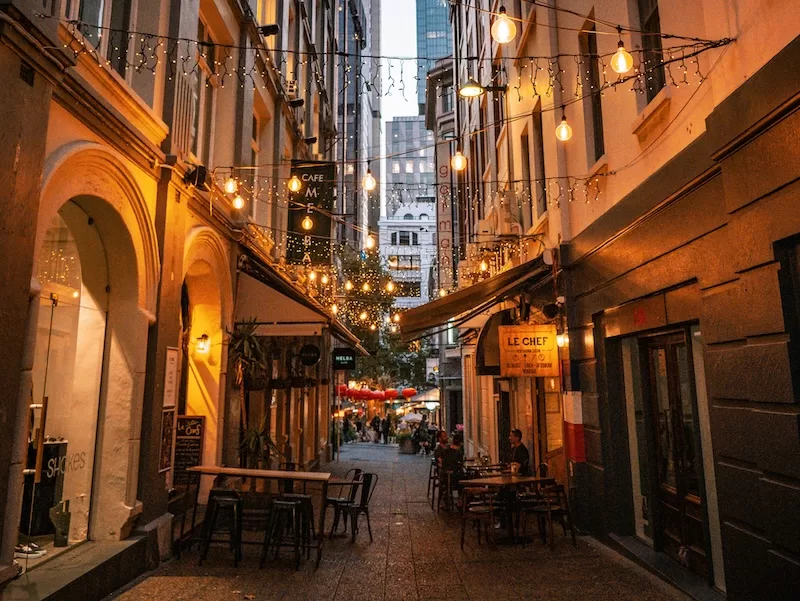
Imported goods (like cheese, wine, or olive oil) can cost 25–40% more than in the U.S. Eating seasonally and shopping at weekend markets helps offset these premiums.
Tip: Supermarkets like Pak’nSave and Countdown often have weekly deals, but local produce markets or Asian grocers usually offer better prices and fresher items. Plan weekly meals around local in-season produce to cut food costs by up to 20%.
Cost of Transportation & Fuel
Owning a car in New Zealand is convenient but comes with ongoing expenses: fuel, insurance, registration, and maintenance.
- Fuel: around $5.80/gallon ($1.53/liter).
- Car insurance + maintenance: $120–180/month combined.
- Public transport pass: $60–145/month, depending on city and travel zones.
Parking fees in downtown Auckland and Wellington can exceed $10/day, making public transit a practical alternative. Intercity buses and domestic flights are reliable, though air travel is relatively costly for short distances.
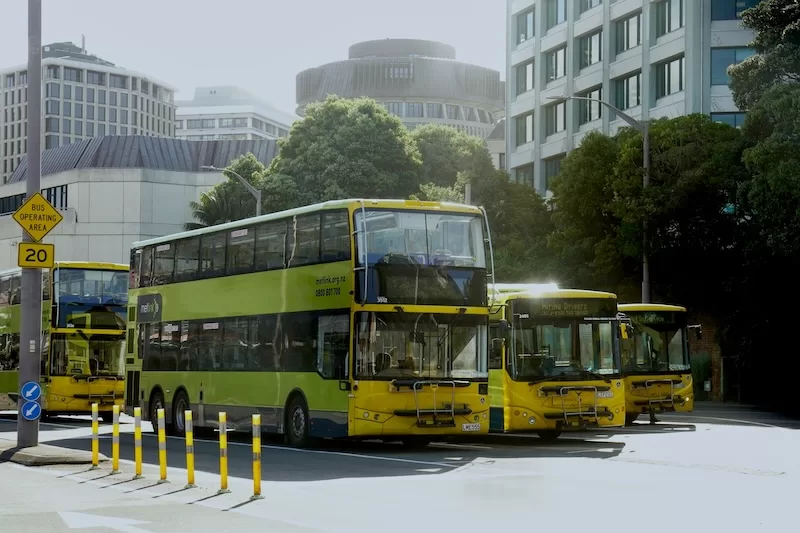
Cycling is increasingly popular in cities like Christchurch and Nelson, thanks to expanding bike-lane networks.
Tip: Use AT HOP (Auckland) or Snapper (Wellington) cards for discounted fares. Regular commuters can save 10–25% monthly by topping up electronically rather than paying single-ride fares.
Cost of Healthcare & Insurance
New Zealand’s healthcare system blends public and private options. Residents and citizens access subsidized services, while visitors and temporary workers usually need private coverage.
- Basic private plan: $580–1,160/year, covering GP visits and emergencies.
- Comprehensive plan: $1,400–2,000/year, including hospital care and specialists.
- Out-of-pocket: GP visit $25–45, dental check-up $70–100, specialist consultation $100–150.
Public hospitals provide excellent emergency care, but wait times for non-urgent procedures can be long, hence the popularity of private coverage among expats and professionals.
Tip: Consider hybrid insurance plans that top up the public system. Providers like Southern Cross or UniMed let you customize coverage based on frequency of doctor visits or pre-existing conditions.
Cost of Education & Childcare
Families relocating to New Zealand should factor education and childcare into their budgets early.
- Daycare / preschool: $60–115/day, depending on location and quality.
- Public schools: free for citizens and permanent residents, but expect $500–800/year in uniforms, supplies, and field trips.
- Private schools: tuition from $8,000–15,000/year.
- International students: living costs around $11,500–14,500/year (excluding tuition).
Public education quality is generally high, with bilingual and international programs increasingly available. Many families choose semi-private or charter schools for smaller class sizes.
Tip: If you’re working in New Zealand, check for the 20 Hours ECE (Early Childhood Education) subsidy, it offers free preschool for children aged 3–5 for up to 20 hours weekly.
Cost of Entertainment, Personal & Miscellaneous
Recreation and leisure costs depend heavily on lifestyle. While day-to-day entertainment is moderate, travel, nightlife, and hobbies can add up quickly.
- Gym membership: $35–65/month.
- Movie ticket: $12–14.
- Local beer at a pub: $6–8.
- Streaming or music subscriptions: $10–15/month each.
Outdoor recreation, however, is practically free. New Zealand’s national parks, beaches, and hiking trails (like the Tongariro Alpine Crossing or Abel Tasman Coast Track) are world-class and open year-round.
Tip: Skip pricey weekend getaways; plan local road trips instead. Free public campsites, “DOC huts” (simple, government-run hiking cabins) and low-cost hostels make exploring the country both affordable and adventurous.

Cost of Living in New Zealand by City (USD)
| City | 1-BR Apartment (City Center) | Average Monthly Budget (1 person) | Notes |
| Auckland | $1,275 | $2,100–2,350 | Most expensive city |
| Wellington | $1,045 | $1,850–2,100 | Government and tech hub |
| Christchurch | $810 | $1,600–1,850 | More affordable, quieter |
| Smaller towns | $580–925 | $1,400–1,600 | Budget-friendly, slower pace |
According to Numbeo, the average monthly cost of living for a single person (including rent) is roughly $1,800–2,200 USD, while a family of four may spend $3,650–4,000 USD.
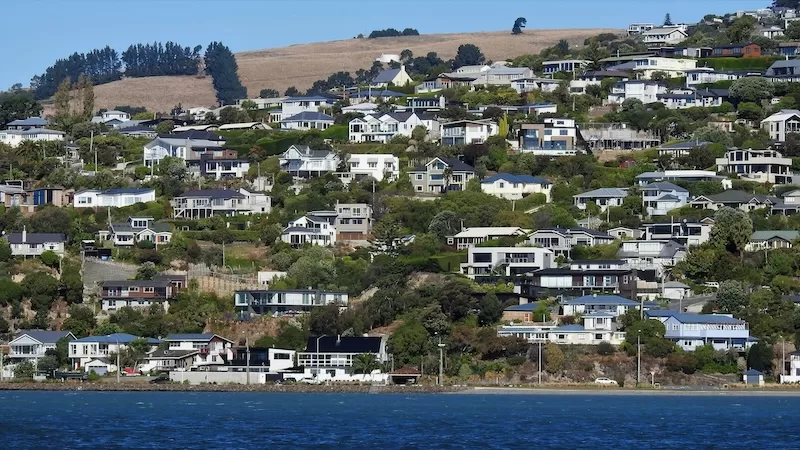
Sample Budgets (in USD) on Cost of living in New Zealand
Scenario A – Single person in Auckland:
- Rent: $1,275
- Utilities + Internet: $130
- Groceries + meals: $450
- Transport: $100
- Insurance, leisure, misc.: $250
→ Total: ≈ $2,200/month
Scenario B – Couple in Wellington:
- Rent (2BR): $1,450
- Utilities: $130
- Food & dining: $700
- Transport: $170
- Leisure + healthcare: $250
→ Total: ≈ $2,700/month
Scenario C – Family of Four in Christchurch:
- Rent (3BR): $1,625
- Utilities & internet: $175
- Groceries + meals: $1,050
- Transport: $230
- Childcare + extras: $175
→ Total: ≈ $3,200/month
These estimates reflect an average lifestyle, not luxury living. Costs can be 20–30% lower in smaller towns or shared housing setups.
Tips to Lower Your Cost of Living in New Zealand
Live outside the city center
If you’re willing to trade skyline views for a 20-minute commute, you can save up to 40% on rent. Suburbs like Lower Hutt (Wellington) or Henderson (Auckland) have great transport links, lower crime, and local cafés that don’t charge $6 for a flat white. Plus, many employers now offer hybrid work, making distance less of a dealbreaker.
Flatting (the Kiwi term for co-living) isn’t just for students. It’s a smart move for professionals, too. Splitting rent and utilities can trim your monthly housing costs by 30–50%, freeing up hundreds of dollars for travel or savings. Websites like Trade Me or Flatmates.nz are popular for finding trustworthy roommates.
Buy local
Imported groceries carry high shipping costs, but farmers’ markets and produce co-ops can stretch your dollar further. Local avocados or honey might be half the supermarket price during harvest season. You’ll also support regional growers and the food tastes fresher. Try visiting a Saturday market in Nelson or Tauranga for seasonal bargains.
Rely on public transport
Owning a car in New Zealand can cost over $3,000 a year once you add fuel, registration, and insurance. Opt for buses, ferries, or trains where possible, especially in Wellington, where public transport covers most suburbs. Commuter cards like AT HOP or Snapper save regular riders up to 25% compared to single-trip fares.
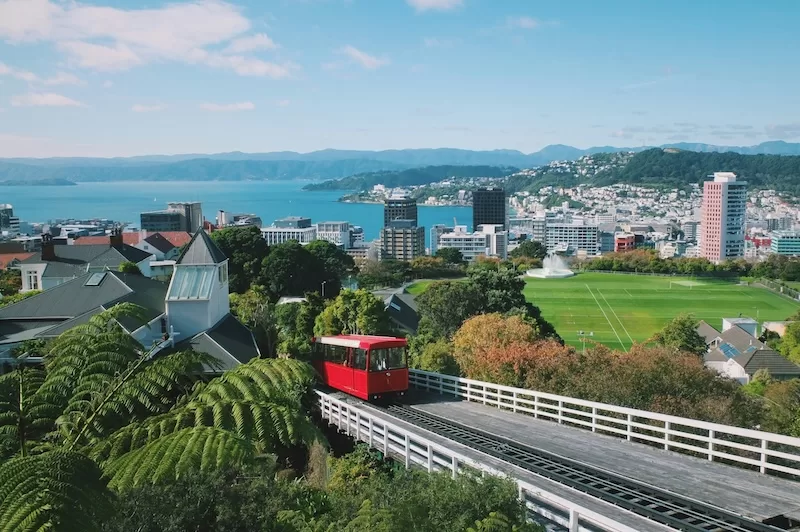
Track expenses
It’s easy to overspend when contactless payments make every latte feel invisible. Use apps like PocketSmith (NZ-based) or YNAB to track weekly expenses and spot where your money drifts. Even simple rules (like setting a weekly cash allowance) can help you stay mindful without living like a monk.
Cook often
Dining out is tempting, but one home-cooked meal costs about a third of what you’d pay at a mid-range restaurant. Plan meals around local produce and freeze leftovers for lazy nights. A bag of rice and a few pantry staples can feed you for a week or fund your next trip to Rotorua instead of your next Uber Eats order.
Bundle services
Telecom companies love loyal customers. Pair your internet and mobile plan with one provider to save $15–30 per month, and keep an eye on seasonal deals. Some even throw in streaming subscriptions or extra data, small perks that add up over a year.
Leverage free recreation
The best part of living in New Zealand? Nature doesn’t cost a cent. Trade pricey weekend outings for beach walks, coastal hikes, or a morning surf. Explore trails like Cathedral Cove or Mount Maunganui, activities that recharge you for free. Pack a picnic, bring friends, and make “budget weekends” something you actually look forward to.

The Burger Budget Rule
Here’s an easy mental trick: a burger in Auckland costs around $15. If you buy one every weekday, that’s $300/month: the same as an entire month of groceries for a careful home cook. That “burger budget” can become your measure: every little indulgence adds up to rent, fuel, or a flight to Fiji.
FAQs
Q1: Is it expensive to live in New Zealand?
Yes. Prices are higher than in about 70% of countries, but public services and quality of life are excellent.
Q2: What salary is needed to live comfortably?
Singles usually need $35,000–45,000/year. A family of four typically requires $65,000–85,000/year for a middle-class lifestyle.
Q3: How much do students spend per year?
Most international students spend $11,500–14,500/year excluding tuition.
Q4: Is healthcare free?
Not entirely. Public care is subsidized for residents, but foreigners need private coverage costing around $580–1,160/year.
Q5: Are prices rising?
Yes. Housing and groceries saw a 3–6% increase in 2024, though inflation has begun to slow in 2025.
Final Thoughts: Is the Cost of Living in New Zealand Worth It?
New Zealand isn’t cheap, but it’s worth every dollar. The trade-off for higher grocery prices and steep rent is waking up in a country where commutes pass mountains, and the ocean is never far away. The cost of living in New Zealand may stretch your budget, but it also buys access to one of the world’s safest, cleanest, and most naturally stunning places to live.
What really matters is alignment: matching your lifestyle to your income, your expectations to reality, and your spending habits to what truly matters to you. A remote worker in Nelson, a family in Christchurch, or a retiree near Tauranga, each experiences a different version of “affordable.”
So, before you pack up, take time to plan. Crunch the numbers, compare cities, and find your own balance between comfort and adventure. Because if you do it right, living in New Zealand isn’t about how much it costs — it’s about how much it gives back.
Contact Author
"*" indicates required fields
Stay Ahead on Every Adventure!
Stay updated with the World News on Escape Artist. Get all the travel news, international destinations, expat living, moving abroad, Lifestyle Tips, and digital nomad opportunities. Your next journey starts here—don’t miss a moment! Subscribe Now!



